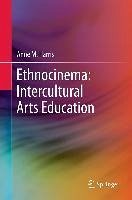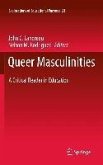With access to online filmed material included, this publication is part handbook and part theoretical treatise framing a new creative ethnographic methodology. One of a rare breed of books covering the visual research techniques that are gaining traction in the academic community, it also introduces ground-breaking intercultural research into Sudanese women who have resettled in the West. Functional as pedagogic material in university and high school classrooms, this package has broad appeal in the academic and educational sectors.
"It is innovative, gutsy, practical, useful, critical and follows principles of socially just research." Prof Carolyn Ellis, University of Southern Florida, USA
"This is an ambitious and passionate work. The author has taken on the task not only of exploring the difficult experiences of a group of young refugee women but has also reflected bravely on her own personal and professional life."Assoc Prof Greg Noble, University of Western Sydney, Australia
Dieser Download kann aus rechtlichen Gründen nur mit Rechnungsadresse in A, B, BG, CY, CZ, D, DK, EW, E, FIN, F, GR, HR, H, IRL, I, LT, L, LR, M, NL, PL, P, R, S, SLO, SK ausgeliefert werden.
"The book Ethnocinema: Intercultural Arts Education is a description and evaluation of the ethics and methodology of participatory media production. ... This book is a most valuable tool for both pedagogy and art research." (Martin Mhando, Australasian Review of African Studies, Vol. 35 (1), June, 2014)
"This book has a cache for professors deeply invested in the practice of critical pedagogy who want to explore the possibilities of teaching and researching with collaborative video production and dissemination. ... Harris so eloquently explains the challenges and responsibilities of sharing the camera in collaborative intercultural video production. Harris provides a practical and thoughtful meditation on collaborative research using video that offers a road map for researchers considering the challenges and opportunities of such a methodology." (Daniel Keyes, PsycCRITIQUES, Vol. 57 (50), December, 2012)









